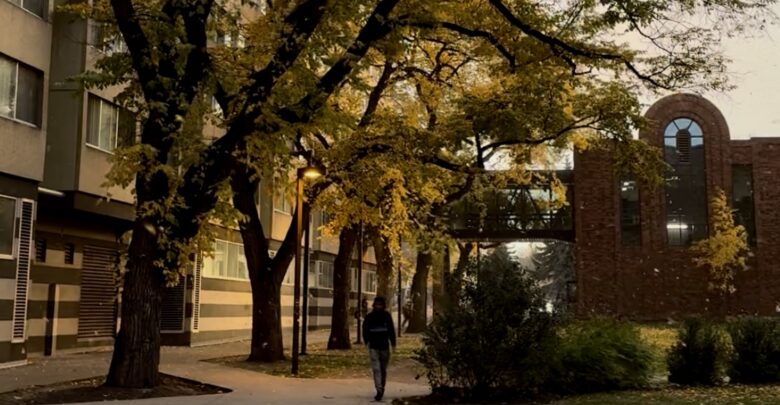U of A violates PhD student’s thesis embargo
The student had requested an embargo to protect his research from being released before publication.
 Jasleen Mahindru
Jasleen MahindruIn June of this year, the University of Alberta published a thesis by a chemistry student despite there being an embargo on his thesis. The thesis was publicly available between June 15 to 23, 2025.
The Gateway granted anonymity to the student on the basis of concerns for potential professional repercussions. The student will be referred to as Jeffery for the purpose of this article.
Jeffery explained to The Gateway that most graduate programs allow for theses to be embargoed for up to two years, subject to approval. The embargo prevents the theses or the information in it from being publicly shared.
“I had applied beforehand for a thesis embargo and everything was approved for this,” Jeffery said. “I defended my thesis … submitted my thesis, and everything was fine.”
After convocation, “I noticed on Google Scholar that the thesis has been online for eight days — the entire thesis,” he said.
His thesis was approved to be embargoed until June 2027. He complained to the faculty of graduate and postdoctoral studies (GPS) and contacted the dean.
A “loss of control of research that has been funded by the Canadian taxpayers,” Jeffery says
“I said I wanted a full investigation into this. How did this happen? Where was the thesis accessed from? And they got back to me a month later.”
He felt this was a very serious issue, but “they didn’t really echo the seriousness of the situation.”
Jeffery said the university brushed it off as human error and told him the thesis had been accessed in multiple cities.
Part of his concern now is that a competing research group could have downloaded his thesis.
Jeffery asked for an investigation and a formal apology. He said that no one ever responded to him. Under the advice of a lawyer, he also requested $10,000 in financial compensation for “the professional harm, loss of control over my research, and the stress incurred in managing institutional responses on my own.”
Another issue for Jeffery is that the Natural Sciences and Engineering Research Council of Canada (NSERC), Canadian Institutes of Health Research (CIHR), and Alberta Innovates had funded the research. Now that information — despite being embargoed — is no longer under his control.
But it’s also a “loss of control of research that has been funded by the Canadian taxpayers.”
“This is unacceptable, and my main [frustration] … is the university had no sense of accountability on this,” Jeffery said.
Emails show “the accusations are serious,” but were labelled as human error
Jeffery had filed an access to information request with the U of A’s Information, Privacy, and Records Management Office. He shared the records he received through his request with The Gateway.
In the emails contained in the file, Ali Shiri, the vice-dean of GPS, said he had concluded an investigation into the “incorrect posting” of the thesis. Shiri said that he had concluded that it was human error.
“The Thesis Deposit Date was not properly updated in the university’s system to align with your requested delay of publication,” Shiri had written in response to an email from Jeffery.
He also noted the thesis was accessed 11 times.
Other emails from Shiri state that he had consulted the Office of the Vice-President (Research and Innovation) and the U of A’s general counsel for legal support. Emails also show that he planned to meet with Melissa Padfield, the deputy provost (students and enrolment) about that matter.
Verna Yiu, provost and vice-president (academic), wrote in an email that “the accusations are serious,” asking what the outcome was.
Jeffery also stated that he wished for the NSERC to review the U of A’s compliance with research stewardship obligations.
The NSERC told The Gateway this falls outside of its mandate and wouldn’t provide further comment.
“The general stance is that, as a public institution, theses should generally be available,” U of A media relations says
Documents also show that the U of A’s privacy office conducted an analysis under the Freedom of Information and Privacy Act, which has now been renamed to Access To Information Act.
In the analysis, Mary Golab, the director of the university’s privacy office, found that the university had not breached the act because the thesis had been intended to be published online. Golab incorrectly stated in her analysis that the embargo was only in place until June 15, 2025, and thus was only published 8 days early.
The Gateway requested an interview with GPS. U of A media relations sent a written statement instead.
The statement said that “it is the intention of the [U of A] that there be no restriction on the distribution and publication of theses.”
However, in exceptional cases, theses may be embargoed, the statement said. To request an embargo, students must submit a Restrict Access to a Thesis form prior to submitting their thesis to the Thesis Deposit.
“Embargo requests are for exceptional cases, such as patenting, future publication, or protecting confidential data. The general stance is that, as a public institution, theses should generally be available. This would be especially important in instances where the research itself was funded by public funds or awards.”
Media relations did not comment on the specific case.
The Gateway also requested comment from the Graduate Students’ Association, but did not receive a response before publication.
Jeffery said that he hopes that this “makes students aware that GPS really it feels is not on the side of the graduate students at all. They’re out there to protect themselves and minimize their accountability as much as possible.”




